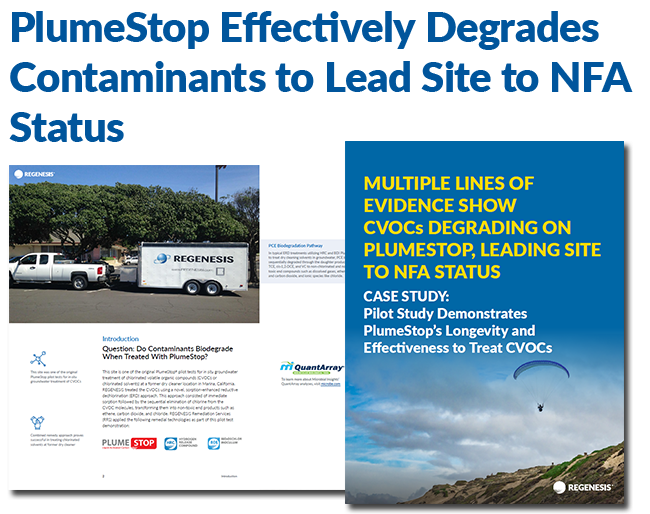This case study reviews one of the original PlumeStop® pilot tests for in situ groundwater treatment of chlorinated volatile organic compounds (CVOCs or chlorinated solvents) at a former dry cleaner location in Marina, California. REGENESIS treated the CVOCs using a novel, sorption-enhanced reductive dechlorination (ERD) approach. This approach consisted of immediate sorption followed by the sequential elimination of chlorine from the CVOC molecules, transforming them into non-toxic end products such as ethene, carbon dioxide, and chloride.
Case study highlights:
- Combined remedy approach proves successful in treating chlorinated solvents at former dry cleaner
- This site provided ideal challenge conditions to demonstrate complete biodegradation using a sorption-ERD approach
- The site was granted NFA status in June 2019 as a result of this pilot study
The CVOC, biogeochemical, and microbial data collected during the pilot test monitoring program provide multiple lines of evidence for post-sorption degradation of the target solvents on the PlumeStop carbon surface. Therefore, the pilot test results confirm the answer to the question: "Do Contaminants Biodegrade When Treated With PlumeStop?". Biodegradation of CVOCs does occur once sorbed onto a PlumeStop-treated aquifer matrix. These findings led to the site being granted NFA status by the CCRWQCB.
Complete the form on this page to download the case study.


